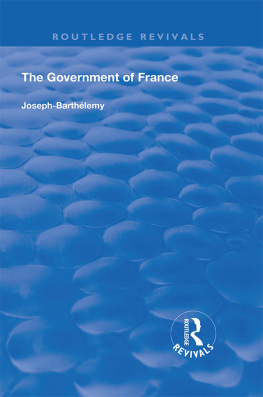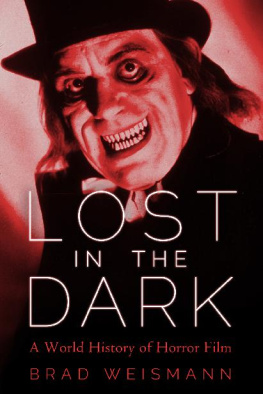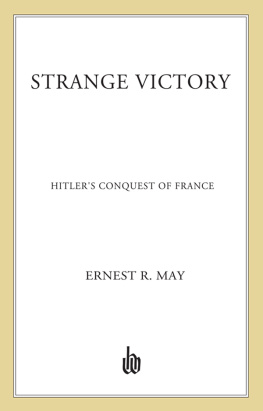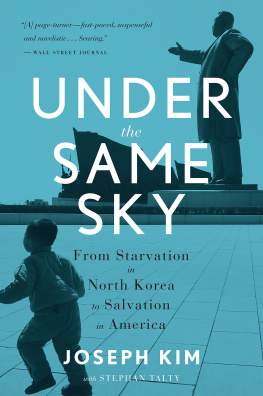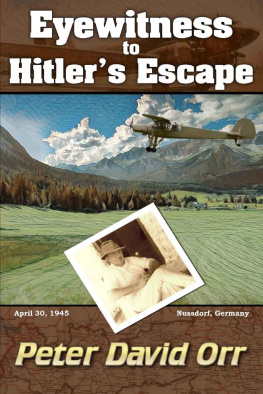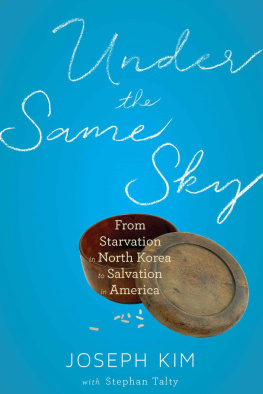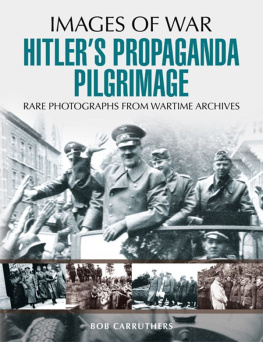Joseph Weismann - After the Roundup: Escape and Survival in Hitlers France
Here you can read online Joseph Weismann - After the Roundup: Escape and Survival in Hitlers France full text of the book (entire story) in english for free. Download pdf and epub, get meaning, cover and reviews about this ebook. year: 2017, publisher: Indiana University Press, genre: Detective and thriller. Description of the work, (preface) as well as reviews are available. Best literature library LitArk.com created for fans of good reading and offers a wide selection of genres:
Romance novel
Science fiction
Adventure
Detective
Science
History
Home and family
Prose
Art
Politics
Computer
Non-fiction
Religion
Business
Children
Humor
Choose a favorite category and find really read worthwhile books. Enjoy immersion in the world of imagination, feel the emotions of the characters or learn something new for yourself, make an fascinating discovery.

- Book:After the Roundup: Escape and Survival in Hitlers France
- Author:
- Publisher:Indiana University Press
- Genre:
- Year:2017
- Rating:3 / 5
- Favourites:Add to favourites
- Your mark:
- 60
- 1
- 2
- 3
- 4
- 5
After the Roundup: Escape and Survival in Hitlers France: summary, description and annotation
We offer to read an annotation, description, summary or preface (depends on what the author of the book "After the Roundup: Escape and Survival in Hitlers France" wrote himself). If you haven't found the necessary information about the book — write in the comments, we will try to find it.
After the Roundup: Escape and Survival in Hitlers France — read online for free the complete book (whole text) full work
Below is the text of the book, divided by pages. System saving the place of the last page read, allows you to conveniently read the book "After the Roundup: Escape and Survival in Hitlers France" online for free, without having to search again every time where you left off. Put a bookmark, and you can go to the page where you finished reading at any time.
Font size:
Interval:
Bookmark:
After
the
Roundup
JOSEPH WEISMANN
Translated by
RICHARD KUTNER

This book is a publication of
Indiana University Press
Office of Scholarly Publishing
Herman B Wells Library 350
1320 East 10th Street
Bloomington, Indiana 47405 USA
iupress.indiana.edu
Original publication in French
2011 Michel Lafon
English translation 2017 by Indiana University Press
No part of this book may be reproduced or utilized in any form or by any means, electronic or mechanical, including photocopying and recording, or by any information storage and retrieval system, without permission in writing from the publisher. The Association of American University Presses Resolution on Permissions constitutes the only exception to this prohibition.
The paper used in this publication meets the minimum requirements of the American National Standard for Information SciencesPermanence of Paper for Printed Library Materials, ANSI Z39.48-1992.
Manufactured in the United States of America
Cataloging information is available from the Library of Congress.
ISBN 978-0-253-02680-4 (cloth)
ISBN 978-0-253-02691-0 (paperback)
ISBN 978-0-253-02704-7 (ebook)
1 2 3 4 5 22 21 20 19 18 17
To Joe Kogan, my fellow escapee,
who helped me to achieve the impossible
During the night of July 1617, 1942, twelve thousand eight hundred forty-four Jewish men, women, and children were rounded up by the French police and taken to the Vlodrome dHiver, a cycling stadium in Paris, where they were kept for days in unspeakable conditions before being transported in cattle cars to internment camps throughout France. Joseph Weismann, barely eleven years old, was one of them.
While my son was interviewing Joseph for an AP French class he was teaching on the Holocaust, Joseph asked him if he knew anyone who could translate his memoir, Aprs la rafle, into English. Joseph and I spoke on the phone, and I set to work. It was a moving and inspiring four months. My biggest challenges were keeping the exuberant, authentic voice of an eleven-year-old boy, adapting the 1940s Parisian street slang, and finding names for things (such as architectural features or pieces of furniture) that dont have an equivalent in English. I hope I have been successful.
The details of young Josephs escape from the camp of Beaune-la-Rolande, after his parents and sisters were torn away from him and sent to Auschwitz, are riveting. But how would he get through the war and reconstruct his life afterward? It wasnt going to be easy or pleasant, and this memoir, written by a man of eighty through the eyes of a boy, is a testament to its authors courage, clearheadedness, positive spirit, and out-of-the-box thinking. After visiting Israel twice, the second time for two years, he decided that France, the country that had cruelly taken everything away from him and presented him with obstacles at every turn, was the only place he could make his home. How could this be?
Joseph joined the French army, married, and ran a highly successful furniture company. He had three children whom he showered with love. But until he was eighty, he kept his story bottled up inside him, giving his wife and children only the slightest hints of what had happened. It was Simone Veil, lawyer, politician, president of the European Parliament, and member of the Constitutional Council of Franceherself a survivor of Auschwitzwho urged Joseph to bear witness to his experiences. That is how the original French version of this book came to be.
Roselyne Boschs 2010 film, La Rafle, vividly evokes the Roundup of the Vl dHiv, with Joseph as the central character. It ends with his escape. This poignant memoir, written a year later, tells the rest of the dramatic story.
It was Josephs fervent desire to write After the Roundup in the hope that history wouldnt repeat itself. Lets hope that his wish is fulfilled.
Richard Kutner
After
the
Roundup
Time to go. I slip on my jacket, plant a kiss on Mamas cheekjust a quick peckand zoom down the stairs full speed ahead. Ive made it about two flights when I hear a shout of exasperation behind me: Joseph! Every morning.... The door!
But I forget Papas reproach right away. I cross the dark, narrow courtyard, fly across the tile floor of the front building, and push open the heavy wooden door. Im outside at last, a smile on my face. My hair, light as a feather, flies in the wind, and I hop like a bird from one corner to the next. An early morning shower has left the paving stones shiny and slippery. The shopkeepers are raising their heavy metal gates, even if they have nothing to sell, and an old man in filthy blue work clothes is pushing his cart to the top of the hill. Montmartre is my garden. All the way to the left, Rue Lepic snakes its way uphill. Ill arrive at my destination right after the bend in the road. On my way to school, I meet up with my friend Guchou.
Hey! I need to talk business with you... something I thought of to earn a little money!
He stares at me with wide-open eyes but not much enthusiasm. He doesnt even seem skeptical, no less worriedIve barely aroused his curiosity.
What kind of business? And what do you need money for, anyway?
To buy candy, of course. Have you eaten a lot of candy lately? Its been ages since I tasted a berlingot!
Thats for sure, but in these times.... And how do you think youre going to go about this?
We arrive at school. I schedule a meeting at playtime to put the finishing touches on my plan.
My schoolbag has been feeling heavier and heavier. Now, in the fall of 1940, it doesnt contain any more books or notebooks than it did last year. Its my back thats having trouble bearing the load. Im nine and a half and as fragile as a sparrow. For more than a year now I havent had enough to eat every day. The past few weeks have been even worse, with the rationing tickets. Im in the J2 category, kids ages six to twelve. In theory, we have the right to seven ounces of bread a day, a little sugar (or rather saccharine), one or two potatoes, and a half a steak per week. I say in theory because even with your ticket in your hand, it isnt easy to exchange it for food. The shopkeepers keep their provisions for themselves or sell them on the black market. My family doesnt have enough money to buy things that way. And I think that even if we did, we wouldnt. Its a matter of principle. My family respects the rules, whatever they may be. We obey the laws of the country that has welcomed usId even say that we submit to them completely. We want to walk with our heads held high and not be ashamed of anything. We dont fool aroundexcept for me.
So listen, Guchou. Were going to earn some money. Im not asking you to steal, dont worry. Were going to earn it by starting a small business. What do you say?
He makes a face, thrusting his hands in his pockets. I say that we dont have much to sell.
There must be something to sell in your house. Something pretty that people would like but that your parents dont really want to keep, no?
I cant think of anything.
Wait a minute, Guchou! Ive got an idea! You must have some postcards....
Postcards? Uh... yeah, I have some, but theres stuff written on the back.
Of course theres stuff written on the back, but who cares? What counts is the picture. Do you have some nice ones? Landscapes, mountains, rivers, churches?
Next pageFont size:
Interval:
Bookmark:
Similar books «After the Roundup: Escape and Survival in Hitlers France»
Look at similar books to After the Roundup: Escape and Survival in Hitlers France. We have selected literature similar in name and meaning in the hope of providing readers with more options to find new, interesting, not yet read works.
Discussion, reviews of the book After the Roundup: Escape and Survival in Hitlers France and just readers' own opinions. Leave your comments, write what you think about the work, its meaning or the main characters. Specify what exactly you liked and what you didn't like, and why you think so.

